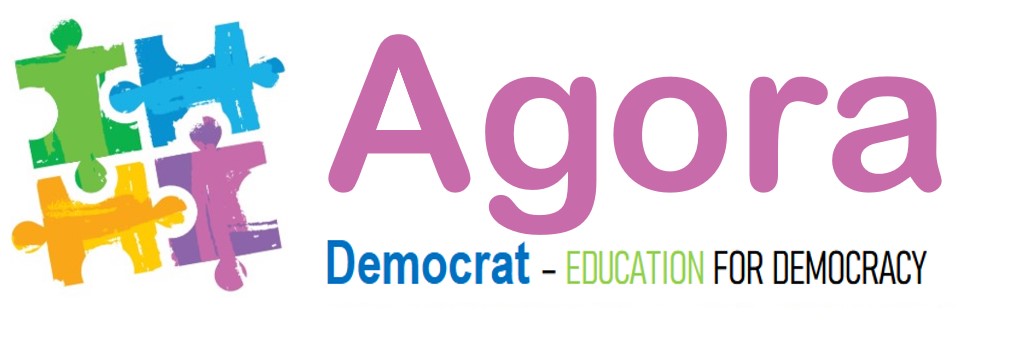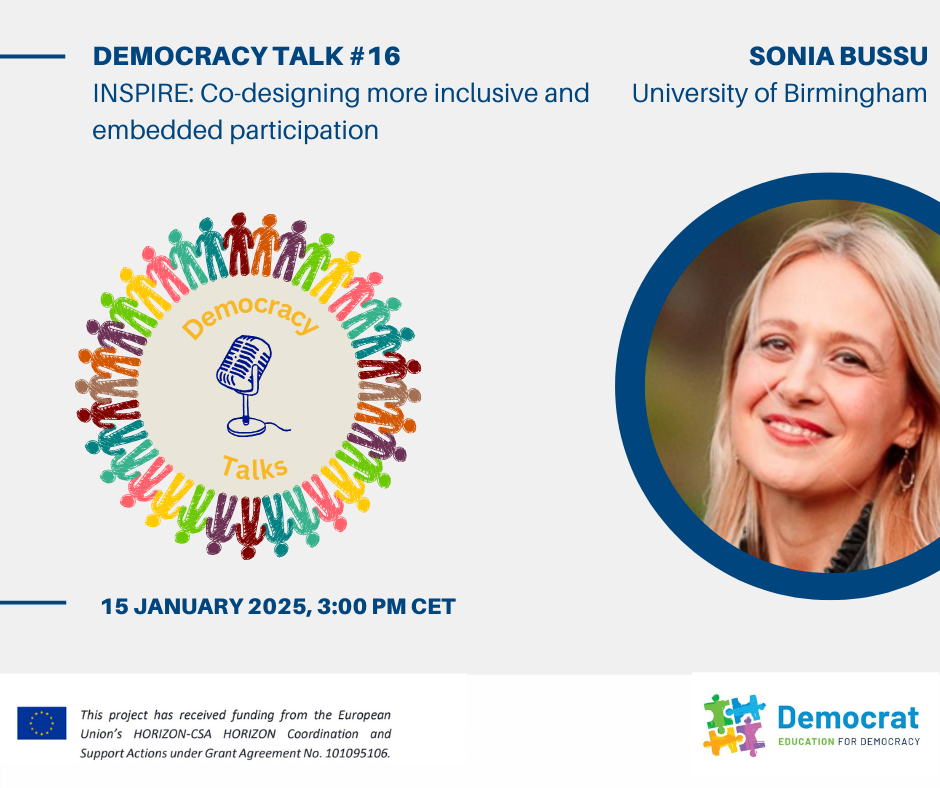On 15 January 2025, we had the pleasure of hosting Democracy Talk 16, where Sonia Bussu from the University of Birmingham shared her insights on the Inspire Project. This Horizon Europe initiative, running from April 2024 to March 2027, seeks to challenge the traditional top-down approach that often characterises democratic innovations in Europe. Sonia’s presentation was a compelling exploration of how we can foster more inclusive democratic spaces through genuine, participatory approaches.
The session delved into the tensions that arise when grassroots-driven initiatives encounter the structural power imbalances embedded within our political systems. Sonia highlighted the project’s commitment to co-designing participatory spaces where the voices of the most impacted communities lead the way. Drawing from assemblage theory, the Inspire Project attempts to understand and navigate the complex interactions between diverse actors, institutions, and practices. This approach isn’t just theoretical; it plays out in real-world contexts where public officials and citizens engage in co-production models, fostering shared ownership and mutual accountability.
One of the most captivating aspects of the project is its use of creative methods, such as Legislative Theatre and Participatory Performance Lectures. Sonia explained how these approaches move beyond traditional public consultations, providing dynamic spaces where community members don’t just discuss issues but actively co-create solutions. Legislative Theatre, for instance, allows the communities most affected by policy decisions to identify problems and collaborate directly with public officials and wider community audiences to craft meaningful solutions. Participatory Performance Lectures blend art and deliberation, creating powerful experiences that encourage deep reflection and dialogue, with the potential to influence policy decisions in tangible ways.
However, the question remains: how do we ensure that the insights generated from these creative methods translate into actual policy changes, especially in socio-political environments resistant to non-traditional approaches? Sonia addressed this by emphasising the importance of continuous engagement with decision-makers and embedding participatory outcomes within formal institutional processes.
Another critical theme explored during the session was intersectionality. The Inspire Project places significant emphasis on ensuring that participatory spaces are not just diverse but genuinely inclusive. Measuring the success of intersectional inclusion goes beyond theoretical frameworks and qualitative narratives. Sonia introduced the Democratic Capabilities Framework, designed to evaluate how socio-economic contexts and intersectional conditions either nurture or hinder citizen participation. Through ongoing pilot assessments and mixed-methods research, the project aims to capture the full spectrum of participant experiences, ensuring that inclusion is both meaningful and measurable.
Reflecting on the discussion, several thought-provoking questions emerged: How can participatory projects maintain their inclusive ethos while addressing the entrenched power dynamics in policymaking? What strategies can help institutionalise creative methods like Legislative Theatre to ensure they have a lasting policy impact? How do we move beyond tokenistic gestures to embed intersectionality meaningfully in democratic innovations? And perhaps most importantly, what role can public officials play in co-creating participatory spaces without unintentionally reinforcing existing hierarchies?
Looking ahead, we invite you to join us for the next Democracy Talk as we continue to explore innovative approaches to democratic engagement and education. Stay tuned for more enriching discussions, and don’t forget to tune in LIVE on YouTube via this link: https://www.youtube.com/@democrathorizon


Leave a Reply